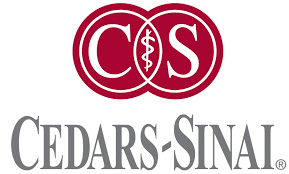
Editor's Note A Phase III clinical trial comparing transcatheter aortic valve replacement (TAVR) with traditional open-heart surgery found no significant differences in key health outcomes 7 years after treatment, Cedars-Sinai October 27 reports. The international PARTNER 3 trial, led by Raj Makkar, MD, and published in The New England Journal…

Editor's Note A freezing technique applied during heart surgery is reducing pain, shortening recovery times, and minimizing the need for narcotics, News 9/CBS News August 13 reports. The procedure, called cryo nerve ablation, involves freezing nerves around the ribs to block pain signals for about 60 days. The nerves eventually…

Editor's Note Surgeons at Duke and Vanderbilt universities have devised simpler methods to retrieve donor hearts after circulatory death, according to a July 16 report from the Associated Press (AP). The research, published in the New England Journal of Medicine, details successful heart transplants using organs from donors whose hearts…

Editor's Note Stanford Medicine scientists have successfully grown heart and liver organoids with functioning blood vessels, potentially overcoming one of the biggest limitations in organoid research: size. As reported in a June 6 article from News-Medical.net, the breakthrough may expand organoid utility for modeling disease, testing drugs, and advancing regenerative…

Editor's Note Sudden, unexpected shutdown and restart prompted the US Food and Drug Administration (FDA) to designate a class 1 recall—the most severe category reserved for serious risk of injury or death—for Abbot’s HeartMate Mobile Power Unit, which powers system controllers for the HeartMate 3 Left Ventricular Assist System (LVAS)…

Editor's Note A low-cost blood test for troponin, a protein released during heart muscle damage, significantly improves long-term risk prediction for heart attacks and strokes—especially in patients with intermediate cardiovascular risk, according to an April 7 report from News-Medical.Net. The findings, based on a large-scale international study led by the…

Editor's Note Researchers have developed a fully dissolvable, needle-injectable pacemaker that regulates heart rhythms without requiring surgical removal. As detailed in an April 2 article in Scientific American, the miniature device—just millimeters in size—can deliver electrical stimulation for days to weeks before safely breaking down in the body, potentially reducing…

Editor's Note A nurse-coordinated prevention program significantly lowered the long-term risk of major adverse cardiovascular events (MACE) in adults recovering from acute coronary syndrome (ACS), according to an April 2 article in Healio. The program, which focused on lifestyle and behavioral changes, led to a 30% reduction in adverse events,…

Editor's Note The widespread adoption of GLP-1 weight-loss medications like Ozempic and Wegovy could put revenue at risk across multiple service lines, according to a March 11 article in Becker’s Hospital Review. As a result, hospitals and ambulatory surgery centers (ASCs) face critical questions about how to adapt. The article…